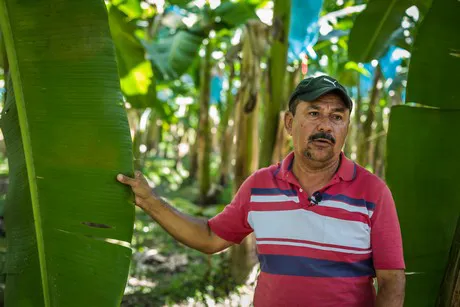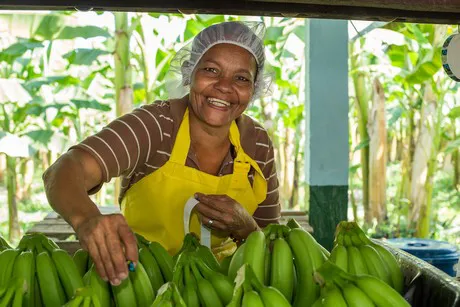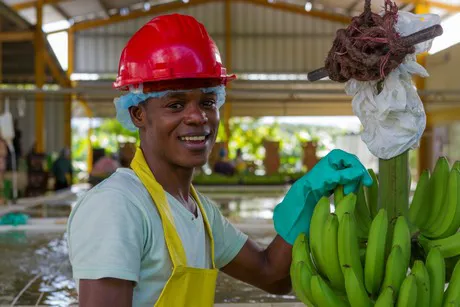
CLAC
He explains that in Fair Trade there are Fairtrade National Organizations responsible for the promotion of fair trade in the different consumer markets. There are also networks of producers in the production regions, as is the case of CLAC in Latin America. "It is the oldest network of small producers and labourers, because Fair Trade started in Latin America 30 years ago. The Network takes care of all the assistance provided to the producers. We work with field workers in different countries, providing assistance, for example, in aspects related to certification or improvements in the production. Also, the coordinator is in charge of important social aspects, such as gender, child protection and, of course, climate change. Depending on the product, these issues can be more or less important, but we help in the launch of operation programs designed to tackle them."
"The companies marketing Fair Trade products pay a license, which again allows organizations like CLAC to have a budget to help the producers. Furthermore, the Fair Trade system guarantees the payment of Fair Trade premiums, which, in the case of bananas, means that each dollar made from this fruit goes directly to the producer organization or to the workers' committee in the case of plantations. This aspect is the most visible one of Fair Trade, because producers and workers use that money to fund projects in the field."

New markets
The role of National Fair Trade Organizations in the different markets is to convince the companies to sell Fair Trade bananas. "We do not promote the certification of new producers in itself, because first we need the demand in the destination markets to grow. The presence of Fair Trade has increased a lot in recent years, but we still need to increase the number of importers and retailers that want to sell bananas under this label. These companies are advised to work with our supply chains, which already have a Fair Trade certification. However, in case you prefer to keep your own supply chain, we can help with the certification."
Nicolás explains that, in some cases, it is necessary to increase the production of Fair Trade bananas first. "A few years ago, we did not have Fair Trade bananas in Mexico. However, it is an important country, because it is the main supplier of fruits and vegetables to the United States. Obviously, the United States can import from other countries, although it is easy to have some suppliers in Mexico now."

Organic and conventional
Nicolás assures that in recent years, the development of the Fair Trade market has been driven mainly by organic bananas. "Around 50% of the Fair Trade supply is organic. We are trying to bring it into balance, because the conventional banana production, in general, is much greater than the organic one. Also, we are trying to enter markets willing to buy conventional Fair Trade bananas, so that large distributors will only have this type of bananas. In Colombia and in the Dominican Republic there are producers whose production is Fair Trade, but not organic, so we have to find markets for that fruit, too."
For more information:
CLAC
E: info@clac-comerciojusto.org
www.clac-comerciojusto.org
